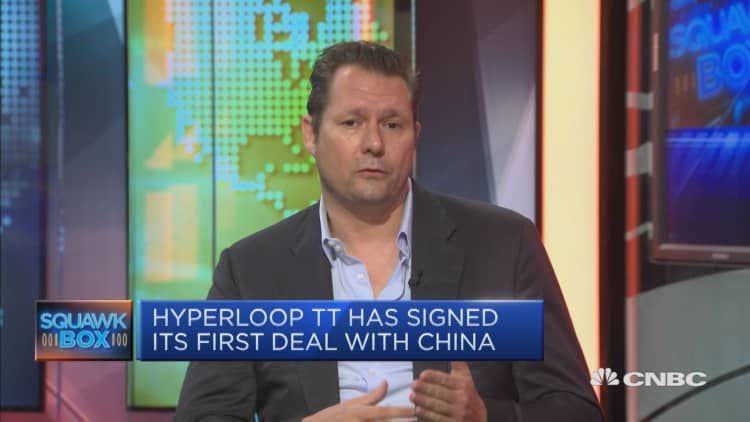The distance between Hong Kong and the Chinese mainland, never far to begin with, is about to get even closer.
The Guangzhou-Shenzhen-Hong Kong Express Rail Link begins operation Sunday, and as its name suggests the purpose is to connect financial and trade hub Hong Kong with the major southern Chinese cities of Guangzhou and Shenzhen by high speed train.
Local authorities are touting it as a breakthrough that will slash travel times by at least half, provide direct access to China's massive 25,000-kilometer (15,500-mile) national high speed rail network and spur economic benefits such as increased tourism.
Critics, however, say it comes with a price in excess of the project's monetary cost of nearly $11 billion: further erosion of Hong Kong's autonomy.
"Frankly speaking, the Hong Kong people have paid a lot for this express rail," said local lawmaker Tanya Chan, who calls the project an assault on Hong Kong's jurisdiction. "And I really doubt the economic return of it."
The concern among critics including Chan is the establishment inside Hong Kong's West Kowloon Station of a Mainland Port Area leased to China and staffed by Chinese immigration and customs officers, where Chinese law is in force. Some see it as violating Hong Kong's Basic Law.
Under the Basic Law, Hong Kong remained in charge of its economy, currency and legal system but as a "special administrative region" of China. Beijing, which oversees foreign affairs and national defense, famously promised the arrangement would not change for 50 years.
Chan, a member of the Legislative Council, said she has asked the government to tell her how many Chinese officials will be working at the station, but has not received a clear answer. Media reports have estimated there could be up to about 800.
"The stationing of several hundred Chinese law enforcement personnel in West Kowloon is worrying," local commentary writer Poon Siu-to said in the Apple Daily newspaper on September 13.
The government says the station staffing system is meant to maximize convenience for passengers so they can go through necessary Hong Kong and Chinese procedures in one location. Hong Kong has set up a similar arrangement across the border.
'Unnecessary fears and anxieties'
Local officials defend the Chinese presence at the station as legal. And Chief Executive Carrie Lam, Hong Kong's governor, has expressed exasperation, describing "all these unnecessary fears and anxieties" about the rail project in comments to reporters earlier this month.
The rail link is just one part of a broader effort to foster economic integration between Hong Kong, nearby Macau — a former Portuguese colony — and the main cities of China's Guangdong Province in a project known as the Greater Bay Area.
The government and businesses have stressed the positive economic impact of the train for Hong Kong, but neither the government's Hong Kong Tourism Commission nor the Hong Kong Tourism Board, a government supported promotion and advisory body, could provide any detailed impact studies.
An HKTB spokesperson said in an email that it is difficult to estimate the effect of the rail line alone on visitor arrivals as they are influenced by various factors, including the exchange rate.
The government said on its website last month that it estimates initial average daily ridership for this year of about 80,000 passengers, increasing to 95,000 in 2021.
The Transport and Housing Bureau said in a report last month to the legislature that more than 90 percent of direct economic benefits will come from time savings for passengers, which it estimated at about $11 billion over 50 years.
Frank Chan, secretary for Transport and Housing, told reporters last month that the train will boost commerce and cultural exchange as well as Hong Kong's status as a transport hub. He also stressed it will help promote "sustainable growth in trades including tourism, commerce and professional services."



